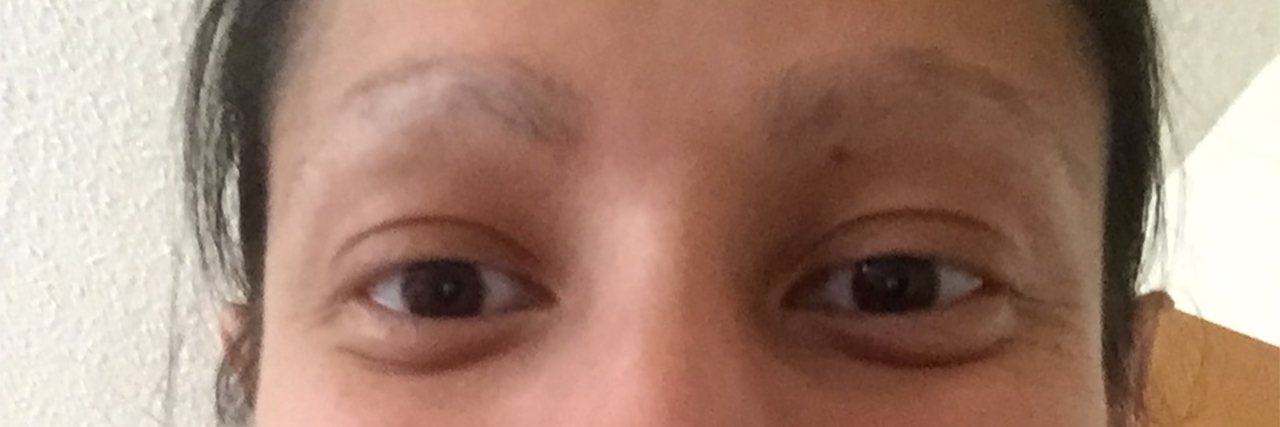What Happened When My Eye Doctor Asked Me About My Missing Eyelashes
Editor's Note
If you struggle with a body-focused repetitive behavior, the following post could be potentially triggering. You can find resources at The TLC Foundation for Body-Focused Repetitive Behaviors.
Growing up, I always had low self-esteem. A lot of things fed into me believing I was worthless. Those “mean girls” on the bus always made sure to remind me I didn’t have what they had. I also had (maybe still have) terrible fashion sense, letting the tomboy in me choose comfort over style 101 percent of the time. This led to me being confused for a boy on numerous occasions, well into my 20s. Baggy jeans and big sweatshirts for the win! Being called “sir” one too many times definitely played into my self-esteem — if others didn’t see me as beautiful, how could I?
In my 20s, I decided that wearing glasses made me look ugly. I thought getting rid of them would be the magic bullet to self-esteem magically appearing. This was all well before Ashton Kutcher and Warby Parker made eyeglasses cool. Around this emotional time, I was also going through a bad break up — like “depressive spiral” bad. My mom, in her unwavering support, gifted me with LASIK eye surgery to try and help ease the situation.
I’ll be honest; getting rid of my “four eyes” did help me see myself in a new way. I was somehow a little less nerdy — on the outside, at least.
But, something else happened. As a hair puller, struggling with trichotillomania since my early teens, my glasses were like a force field protecting my eyebrows and eyelashes from the chaos of my fingertips. Without my glasses, I went on pulling frenzies, especially at work, which was always stressful in one way (or a thousand ways).
After the LASIK, I was on a strict check-in schedule with the ophthalmologist who performed the surgery. During the 3-month checkup, he came super close to my eyes, squinted and asked critically: “What acne medication are you on?” I told him I wasn’t on anything and I don’t see a dermatologist. He replied back: “Strange. I wonder what’s causing your eyelashes to disappear, then.”
I didn’t have the heart to tell him the truth.
As I thought in my head, “Oh, that would be me.” I instead replied, “I have no idea.”
Surely my acne-ridden face was redder than before. I was so embarrassed. In 10-15 years of pulling, this was the first time anyone really noticed or rather asked me point-blank about my lack of lashes. I was shocked that, as a medical professional, he didn’t know about trichotillomania.
Quiet as a mouse, I just kept thinking “please don’t call my mom in here!” Luckily he didn’t and the appointment ended right quick. Looking back, maybe he was embarrassed in a way for calling me out like that. I guess I’ll never know. What I do know is I was too embarrassed at the time to be the one to educate him.
But not anymore. Now I’m free of trichotillomania and I have taken control.
I wish I had the self-esteem I have now, so I could strongly and confidently say, “I pull out my hair and it’s a mental health condition called trichotillomania.” I wish I had the information I have now so I could educate him and send him to resources like The TLC Foundation for Body-Focused Repetitive Behaviors.
In a weird twist, today my eyebrows and eyelashes have grown back in while my eyesight is now disappearing!
If you or a loved one is affected by body-focused repetitive behaviors, you can find resources at The TLC Foundation for Body-Focused Repetitive Behaviors.
We want to hear your story. Become a Mighty contributor here.
Image via contributor

